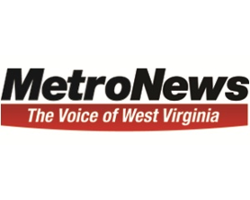Once-in-a-Lifetime Opportunity for West Virginia

By Hoppy Kercheval
June 14, 2021 - During the West Virginia's legislative session earlier this year, McDowell County Delegate Ed Evans rose on the House floor to speak about the conditions back home. As our Brad McElhinny reported, the Democrat from Welch was near tears as he described the challenges in his community.
“This week, Thursday, we closed Walgreens. Who closes a Walgreens? We closed Walmart. We closed Magic Mart. We’ve closed everything,” Evans said. “You all have no idea what my people go through.”
McDowell County is one of the most economically depressed counties in the state. It once was a thriving coal mining county with a population of over 120,000. But coal mining dried up. People moved away or died off. Now fewer than 20,000 people live there.
There are no jobs to speak of. Nearly three-fourths of the school children live in a household where no one is getting a paycheck.
Fortunately, the public-private initiative Reconnecting McDowell is making a difference. The effort has brought together more than forty organizations that are committed to a long-term effort to improve education and create a more hopeful economic future.
But that won’t solve all the problems.
The challenges in McDowell County are also found in other parts of the state, especially in communities where coal mining has disappeared, and coal-fired power plants have closed. They need help.
Yes, I know President Ronald Reagan’s quote about the nine most terrifying words in the English language: “I’m from the government and I’m here to help.” However, who else is going to help?
The private sector is not without its altruists, but businesses are reluctant to go it alone when the challenges are so monumental—lack of a trained and dependable workforce, poor infrastructure, scarce housing and amenities for employees.
Delegate Evans is one of the members of the newly-formed Coal Communities Comeback working group chaired by Delegate Mark Dean (R-Mingo). The bipartisan group will fan out into struggling communities, gather information, and develop revitalization plans.
The biggest difference between this effort and many other revitalization efforts over the years is the funding available. Federal money is pouring into the state and communities, hundreds of millions of dollars for water and sewer projects, broadband, road work, utilities, housing, job training, clean energy research, education, health care, on and on.
Throwing money at a problem does not necessarily translate into a solution, and economic central planning is notoriously flawed and wasteful. However, this massive influx of money is a once-in-a-lifetime opportunity to, at a bare minimum, make these communities more livable.
Economic opportunities may follow. However, even if they do not, at least the quality of life for our fellow citizens in these communities will be better.

